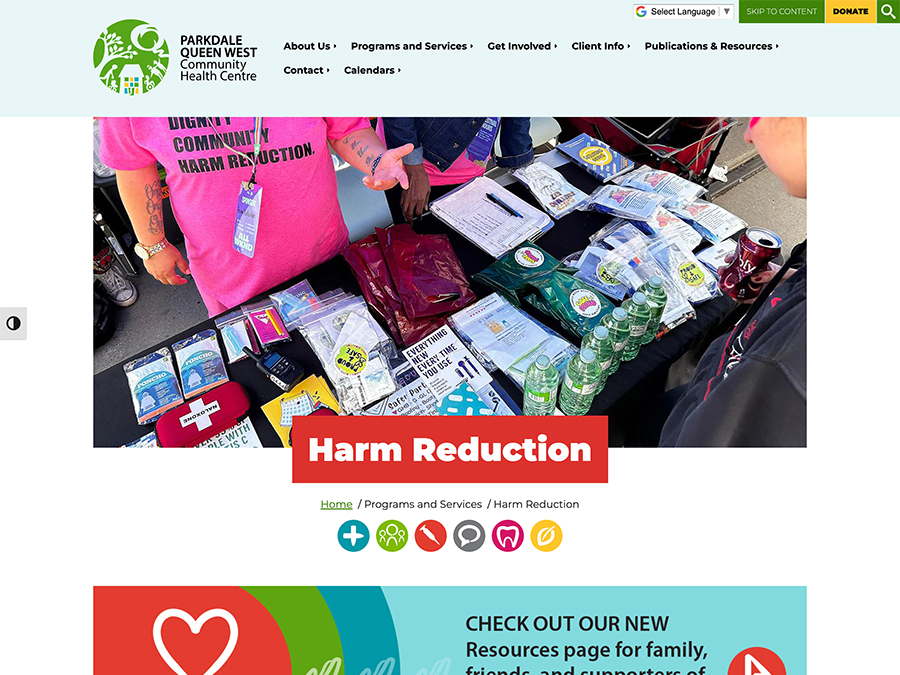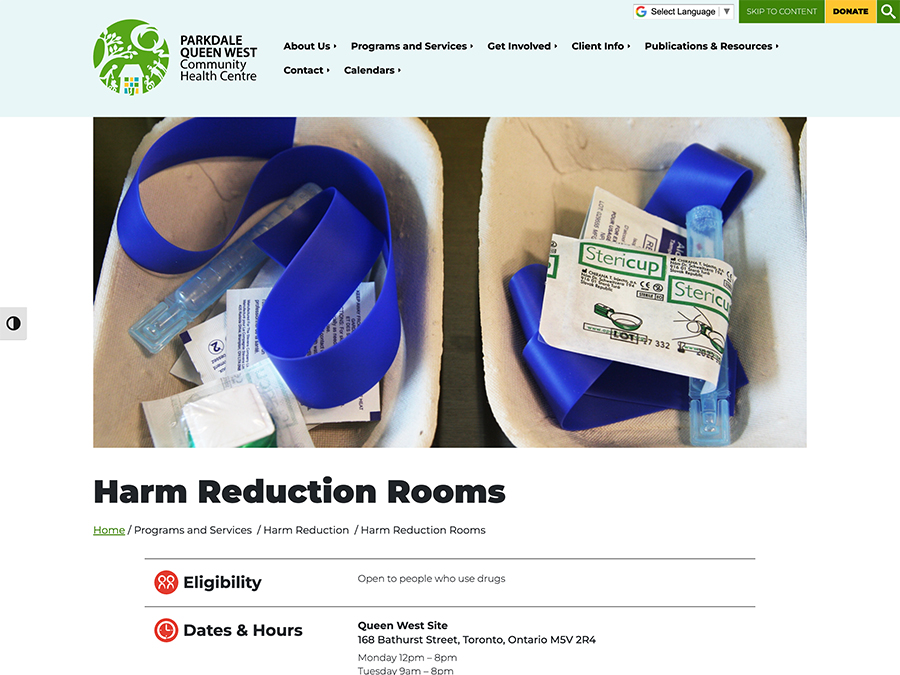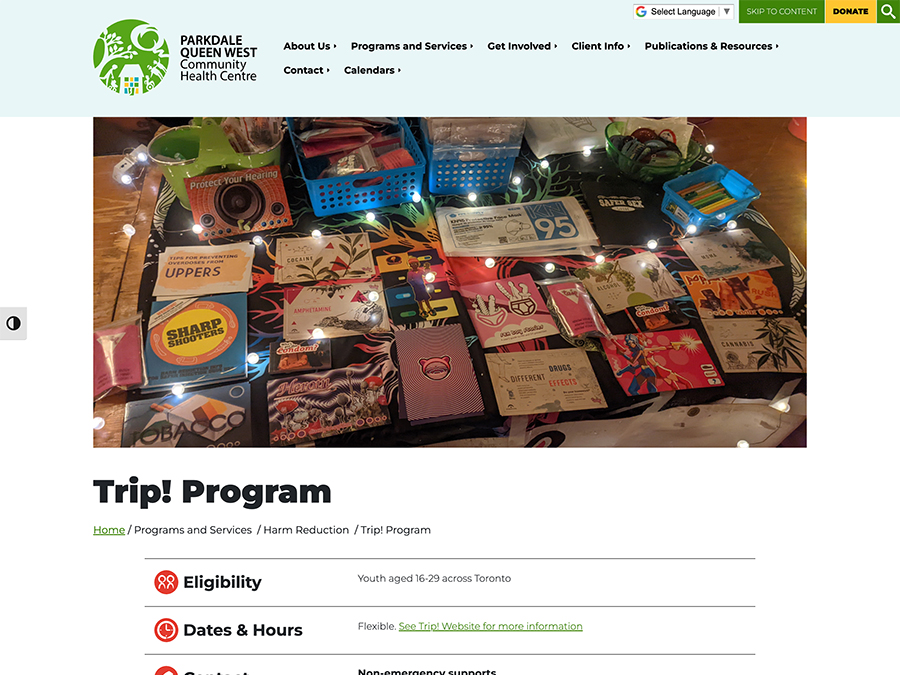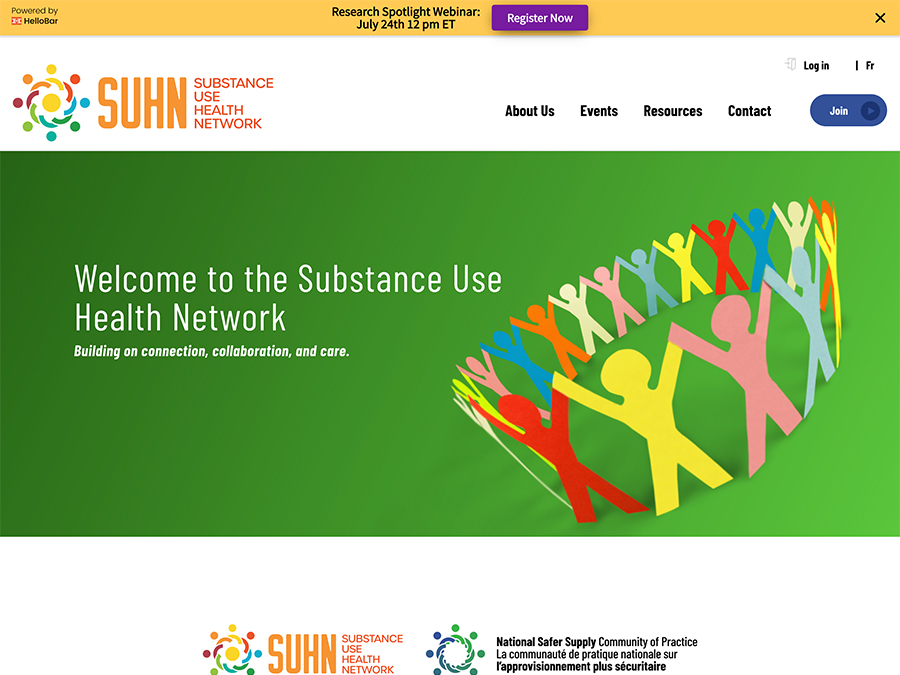Harm Reduction Resources for Families, Friends, and Supporters
What is harm reduction? What is safer supply?
Caption: The National Harm Reduction Coalition (US) produced a video in which people talk about the truth of harm reduction from their experience and perspective (2020, 5 min).
Safer supply is an example of a harm reduction approach to substance use. Harm reduction approaches acknowledge, without judgement, the risks that come with various human activities, including substance use, and aim to address and manage those risks without requiring people to stop the activity.
For example, using unregulated (or street-based) fentanyl comes with risks because of the contamination of the supply, the possibility of fatal overdose, and the criminalization of drug use. Safer supply aims to reduce potential harms of opioid use and its criminalization by providing people with an alternative opioid of a known dose and strength. This is a pragmatic response because people who use opioids may not want to stop or be able to stop, but they still deserve to stay alive and as healthy and safe as possible.
There is more information about harm reduction and safer supply at the links below.

National Harm Reduction Coalition
Foundational Principles Central to Harm Reduction
These foundational principles outline key aspects of a harm reduction approach, including accepting the reality of substance use, prioritizing wellbeing above abstinence, and centering the needs and perspectives of people who use drugs.

Canadian Association of People who Use Drugs, CAPUD
Safe Supply Concept Document
This Concept Document from 2019 defines safe supply as “a legal and regulated supply of drugs with mind/body altering properties that traditionally have been accessible only through the illicit drug market.” It lists reasons that safe supply is needed, lists some examples, and explains the difference between safe supply and treatment.

Government of Canada
Safer Supply
This webpage includes general information about federally funded safer supply programs. There is a map of programs across the country available here.
What supports are available to family and friends of people accessing harm reduction programs?
Traditional approaches to substance use, such as treatment with methadone, often assume that all people with problematic substance use must stop using to be healthy. However, there can also be a strong moral component to these approaches that reflects attitudes about what people should do, rather than asking what they want for themselves. This means that many programs for people who use drugs and their loved ones also reflect these attitudes, which can be confusing if treatment or other approaches are not desired or not working.
There are some supports emerging for loved ones of people who use substances that prioritize the values of harm reduction and personal autonomy. A few are listed below.

Moms Stop The Harm
Holding Hope Support Groups
Holding Hope Groups are peer-led support groups, offered at no cost, to families with loved ones living with addiction (substance use disorder) across Canada.

Moms Stop The Harm
Healing Hearts Grief Support Groups
Healing Hearts is a free bereavement support group specific to those grieving the loss of a loved one due to overdose or substance-use related harms.

Moms Stop The Harm
Moms Stop The Harm
From the Moms Stop The Harm website: “Moms Stop the Harm (MSTH) is a network of Canadian families impacted by substance-use-related harms and deaths. We advocate for the change of failed drug policies, provide peer support to grieving families, and assist those with loved ones who use or have used substances.”

Breakaway Community Services, Toronto
Family & Youth Initiative
From the Breakaway website: “This initiative is an outpatient program developed to meet the needs of youth, aged 12 to 25, and their family members and friends who are struggling with substance use concerns. Services are provided from a harm reduction approach in a supportive, non-judgmental manner.”
Harm Reduction Programs at Parkdale Queen West Community Health Centre

Parkdale Queen West Community Health Centre
Harm Reduction Programs
Parkdale Queen West Community Health Centre offers extensive on-site and outreach-based harm reduction programming. This includes operating supervised consumption services (SCS), providing harm reduction equipment and drug checking, running special programs for youth and those residing in Toronto shelter spaces, fostering peer support, and prescribing safer supply with integrated social care supports. Links to some of these harm reduction programs are included below.

Parkdale and Queen West Sites
Harm Reduction Rooms
These drop-in based resource rooms carry many items needed for safer sex, safer body piercing, and safer substance use, as well as items for hygiene and personal care.

Other Resources
Families, friends, and supporters may wish to become involved in knowledge sharing about harm reduction and safer supply or may require immediate crisis support. See the resources below, and please use the contact form at the bottom of the page to suggest additional resources.

Substance Use Health Network
Formerly known as the National Safer Supply Community of Practice, the Substance Use Health Network is a membership-based group open to anyone supportive of safer supply. The Substance Use Health Network provides education opportunities (drop-in meetings, webinars), informational resources (evidence briefs, guidelines, resource library), and support for those developing, delivering, and accessing safer supply programming nationally, including recipients of safer supply who may also have program roles. Visit the website to learn more and to find out about opportunities to engage.

Gerstein Crisis Centre
The Gerstein Centre offers a variety of supports to those in crisis. The 24-hour crisis line is (416) 929-5200.
Frequently Asked Questions
Parkdale Queen West Community Health Centre (Parkdale Queen West CHC) is a community-based health service organization located in south-west Toronto. We offer a broad range of services, including primary health care, dental care, harm reduction, health promotion, counselling, and community development programming. We offer services at three main clinic locations, as well as within the community.
We work to improve the health and wellbeing of individuals and communities who are at risk and/or face barriers to accessing high quality health care services and supports. Priority is given to individuals and groups who encounter barriers to high quality health care services, including marginalized or vulnerable populations such as newcomers, Indigenous and racialized communities, people who are homeless or street-involved, people living with mental health issues, people who use drugs, people with disabilities, isolated seniors, LGBTQ communities and people living in poverty.
Harm reduction is a principle and set of practices that acknowledges and seeks to manage the risks that come with many regular human activities, including sex and substance use. Harm reduction takes a non-judgmental and non-punitive approach and does not aim to stop people from engaging in these activities, but instead promotes health and safety and accepts the person as they are.
Harm reduction approaches are important because they honour the choices that people make for themselves rather than imposing a behaviour change that people may not want to or be able to make (for example, stopping their substance use). Instead, tools and strategies are offered to promote people’s safety and autonomy (for example, injection kits to help people avoid infection and naloxone for when people are using outside of supervised spaces).
A supervised consumption service (SCS), sometimes also known in Ontario as a Consumption and Treatment Service (CTS), is a place where people can use their drugs legally and with support. Staff at the SCS are highly trained in overdose response and offer education on injection technique, safer use practices, and other community resources for people who use drugs. Clients at the PQWCHC SCS can receive nursing care and be referred to an array of health services offered at the centre, including primary care, anonymous hep C and HIV testing and hep C care, the Four Winds Indigenous Health and Wellness program, and dental care.
Sometimes, harm reduction approaches to substance use and treatment are seen as in opposition to one another, when in fact they exist in a spectrum of services for people who use drugs.
For some people, treatment, and abstinence, are the paths that best support their wellbeing and goals. But harm reduction does not assume that substance use must stop for people to live full, healthy lives, or that substance use ought to be avoided and has no benefits. Harm reduction approaches make it possible for people to manage the risks that may come with their substance use so that they are alive and as healthy as possible, and can decide for themselves if they wish to change their substance use or not.
Contact Form
To stay in touch and receive periodic email updates about resources and opportunities for family, friends, and supporters of people accessing harm reduction programs, please add your email address to our resources mailing list. (Note that this list is separate from the SOS Mailing List – if you wish to receive SOS program updates as well, add your email to both lists.)

